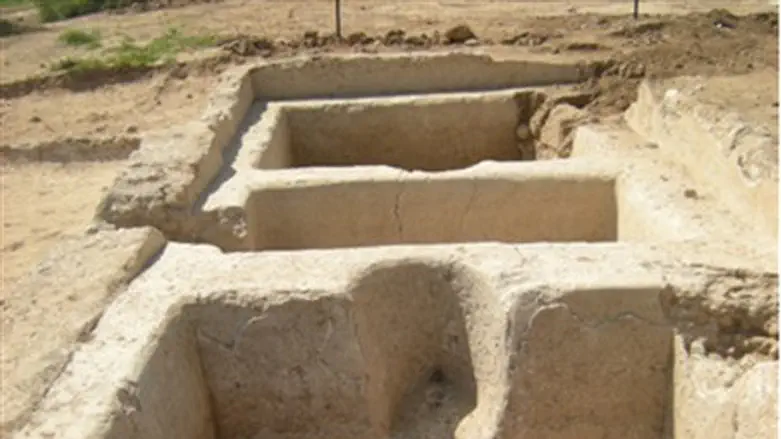
Antiquities Authority workers have discovered a well-preserved Byzantine era wine-making facility in southern Israel. The discovery, made during a construction project for a wedding hall, is one of the best preserved examples of an ancient wine-making facility from that era found so far in Israel.
In addition to the wine-making facility, an almost perfectly preserved clay model of a church was also discovered. The find was discovered near Hamei Yoav, east of Ashkelon.
The wine-making facility includes a 100 meter tiled floor for crushing grapes, as well as a winepress. Below the wine-making floor are three large holes, where freshly produced grape juice would flow. The holes were well protected from dirt and pests, and there are several vats for the fermentation of the wine around the facility.
The owner of the facility was apparently Christian, archaeologists said, as the model of an as yet unidentified Byzantine-era church was found at the site. The model is intricately made, with precisely carved crucifixes, decorations, and handles for the doors and windows.
The latest find, announced Thursday, is one of three wine-making facilities near Ashkelon that have so far been discovered. Archaeologists said that the find is further testimony to the importance of Ashkelon as a trade and export center during the early middle ages.